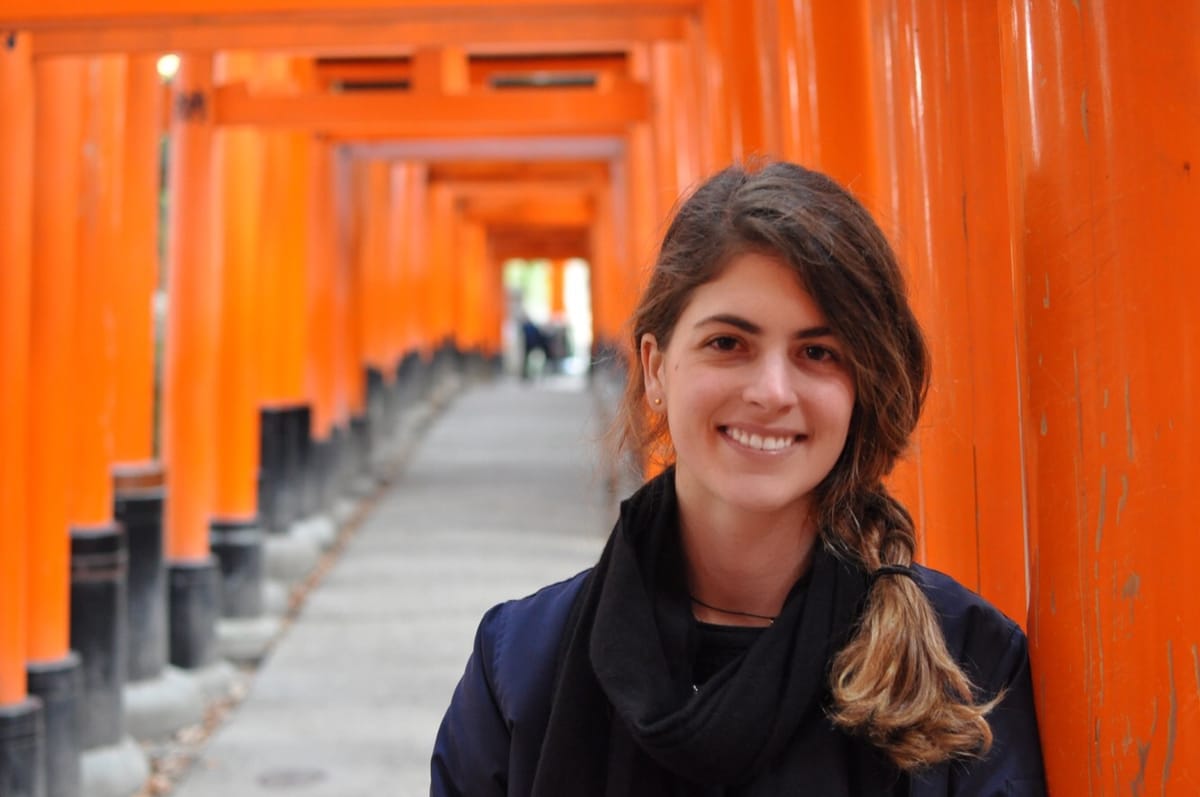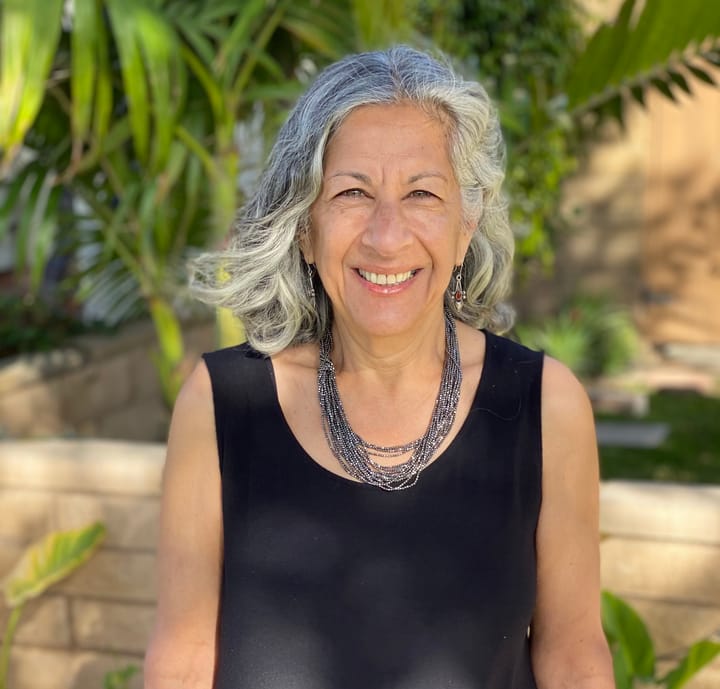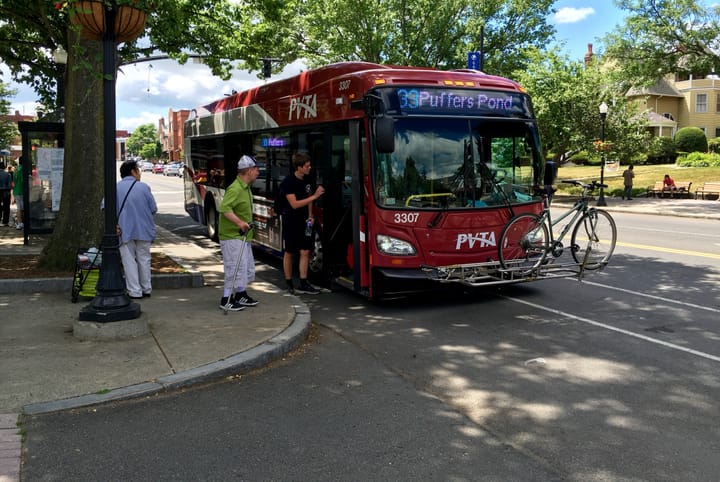Young Alumna Navigates Career Changes

For most college students, life after graduation is a shudder-inducing idea — the prospect of finding a job that provides stability and pleasure seems bleak. However, for current students and recent graduates alike, Isabel Camacho ’14 stands out like a beacon in the sea of uncertainty, showing that success and happiness are both attainable soon after receiving a diploma.
In the four years since graduating, Camacho has seamlessly transitioned from plans for medical school to financial management to the start-up Blue Apron. Though there were bumps in the road, Camacho could always fall back upon the skills she built during her time at Amherst. Her unrelenting drive, ability to think on her feet and willingness to challenge herself with new opportunities have proved invaluable.
An Atypical New Yorker Few cities engender as much loyalty in its residents as New York does, as almost anyone from the five boroughs will be sure to tell you. At first glance, Camacho is no different, having lived in New York all her life apart from four years in the Pioneer Valley. However, as Camacho herself is quick to note, her experience growing up in the Big Apple was anything but typical.
Introduced to tennis at an early age by her parents, she quickly found herself wrapped up in the junior tennis circuit. While other young New Yorkers were exploring the city, Camacho was instead practicing on tennis courts all over Long Island and New Jersey. Understandably, Camacho came to loathe the sport, as the constant travel and tennis’ inherent isolation began to leave a bitter taste in her mouth. “I hated it,” Camacho remembered. “I didn’t even know if I wanted to play tennis in college.”
Camacho found more pleasure in her studies at The Spence School, a private all-girls school that she attended from kindergarten through 12th grade. She developed an especially close bond with her biology teacher during her junior and senior years at Spence. Although she had hated chemistry and physics, Camacho came to adore biology, and her teacher ended up writing one of her letters of recommendation for college applications.
A confluence of factors made Amherst a natural fit for the New Yorker. The opportunity to attend a top-tier liberal arts college meshed well with Camacho’s desire to spend her undergraduate experience in a more rural setting. Meanwhile, her older brother, Julian Camacho ’12, was already at Amherst and on the men’s tennis team, so Isabel was more comfortable with Amherst than other similar schools.
Ironically, though, it ended up being tennis — the sport she loathed in high school — that proved the decisive factor in Camacho’s choice. The summer before her senior year of high school, Camacho had the chance to meet Amherst women’s tennis head coach Jackie Bagwell. According to Camacho, “I met Jackie … and we hit it off, and it went from there.”
Success on the Courts As with Camacho’s time at Spence, tennis defined her Amherst experience, and she quickly discovered a newfound passion for the sport. She especially appreciated that the individualism which defined the junior tennis circuit was replaced by collectivism, noting that, “[though] you’re on the court by yourself a lot of the time, the fact that you’re not doing it for yourself or for your parents — you’re doing it for your teammates — that was a huge thing for me.”
Though Camacho did note that the team’s relationship wasn’t always perfect, the group developed a team spirit that extended off the court. “I would say that we were all genuinely friends,” she said, adding that, “… it was a really inclusive group, and I don’t think there was that much intra-team competition.” Camacho herself was key in fostering this sense of community, serving as captain of the team her senior year. Bagwell spoke to this fact, noting that “Isabel was always a great mentor of younger team members, especially in doubles.”
These bonds paid off on the court, with Amherst experiencing one of its most successful runs in program history while Camacho was on the team. The team made it to the semifinals of the NCAA tournament all four years, reaching the finals in 2011 and 2014. Though she played in several thrilling matches during her time at Amherst, Camacho did not hesitate when asked which memory from her tennis career was most salient.
“For sure the most poignant memory I have of a specific match was the year we got to the finals, my senior year,” she said. In order to reach the national championship match, Amherst had to go through Williams, which had won the past six national titles. The teams met in the semifinals, with a berth in the national championship on the line, and Camacho remembers every moment of the night.
“I genuinely think that match took five years off my life,” she said. “It was the most emotional I’ve ever felt during any kind of sporting event.” When Amherst finally won, she immediately broke down: “I’m not a big crier but I [was] bawling. It was a release of emotions and we all went and crowded around Gabby [Devlin ’14] and there was this huge group hug and we’re all crying.”
Flirting with Medicine Though tennis undoubtedly left a substantial impact on her time in college, Camacho didn’t spend every second at Amherst on the courts. In the classroom, Camacho chose to pursue the pre-med track, embracing a seemingly predestined career path. As the granddaughter of a pediatrician who practiced in Cuba and other developing countries, Camacho had long assumed a future in medicine.
It was at Amherst, though, that she developed an appreciation for the human side of medicine — an appreciation that manifested itself in her decision to major in psychology rather than a hard science. The tipping point for Camacho was the introductory psychology course she took with Lisa Raskin, professor of psychology, neuroscience and European studies, which she absolutely loved. “After that class, I think I told my friends that every person in the world should take Psych 101, because I think I felt the stuff we had covered was so real world,” Camacho remembered.
In her senior year, Camacho wrote a thesis on the psychology of music preferences under the guidance of Professor of Psychology Matthew Schulkind, who remembers not only Camacho’s aptitude for the field but also the incredible drive she demonstrated over the course of the project. “Isabel was intellectually curious, brave, hard-working, creative and fearless,” he said. “… [She] still stands out as an excellent example of what Amherst strives to be. She excelled in and out of the classroom and was a joy to be around.”
Her thesis experience, combined with several summers spent shadowing doctors in the field and doing even more research, provided Camacho with a world-class introduction to what she believed to be a future in medicine. Indeed, the summer after graduation, she took two organic chemistry classes, which she had been unable to take at Amherst due to scheduling conflicts, at New York University in preparation for taking the MCAT. In August 2014, matriculation in medical school seemed inevitable.
A Turn Towards Finance “I think I always felt a little bit one foot in one foot out,” Camacho said, looking back on her decision to leave medicine. “I always felt that I had these other interests that were kind of nagging at me that I had never had the chance to pursue because all of my summers had to be pre-med related.”
The seeds of doubt planted, she began to explore other possible career paths. Although she hadn’t taken a single finance or economics course at Amherst, Camacho took a chance and applied to a job at BlackRock, the world’s largest financial asset manager and a pillar of the industry. While she didn’t find her specific position in marketing analytics to be anything remarkable, she greatly appreciated the opportunity to develop both her hard and soft skills at such a major institution.
After a couple years at BlackRock, an opportunity to join Blue Apron, the popular meal-kit service provider, came to Camacho’s attention. She leapt at the chance to join the startup, which she saw as a means to both further develop her business acumen and work in the hospitality sector.
Camacho had long shown an interest in the field, traveling all over the Pioneer Valley to try different restaurants. Although her current role at Blue Apron as part of the finance and strategy team is directly related to finance, Camacho appreciates the chance to work at least adjacent to her major field of interest. “I’m at this company that I really care about what we’re doing, and it’s awesome for me to be at somewhere that half the time we’re talking about tomato cost and these different recipes,” she said.
Apart from the ability to do something she’s interested in, Camacho especially appreciates the opportunities Blue Apron provides. “I’m in this role that I have huge access and influence and decision-making power and I have a seat at the table during all this interesting decision-making that’s happening,” she said. “I’m learning so much from everything we’ve gone through.”
Though Camacho isn’t sure how long she will stay at Blue Apron, the past two years have been invaluable in shaping her perspectives on both business overall and her own career plans. She’s developed an interest in potentially either running or starting her own company and is considering attending business school. The one constant in all her future plans is ensuring that she ends up “around people who care what they’re doing and being in a place where I care about the product.”
Friendly Advice Perhaps more so than any other graduate profiled in these pages, Camacho is equipped to offer sage advice to current Amherst students and recent alumni afraid of an uncertain future. When asked for such advice, she kept it simple: “Don’t catastrophize.” Granted, Camacho didn’t necessarily heed her own advice when making the decision to leave behind medicine — “when I was sitting there making that decision, it was the most dramatic thing ever.”
However, she successfully made the 180-degree transition, and her success today is a testament to not only the power of her drive, but also the value of an Amherst education. “Rely on the fact that you had a really great education and people will look at you and know that you’re smart person and trust that you can figure it out,” she said. Camacho certainly has and for any young Mammoth, her past four years are definitive evidence that yes, happiness and success can be attained before the age of 40.




Comments ()